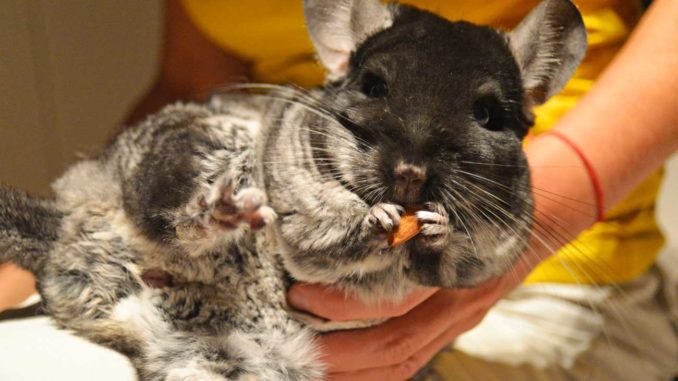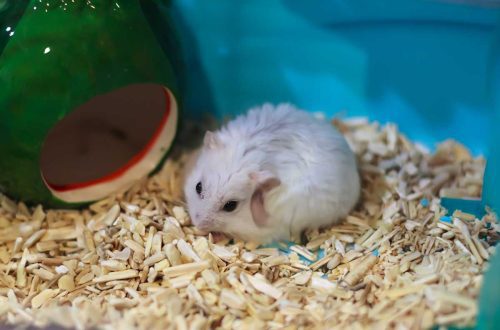
Allergy to chinchilla in a child and an adult, are there hypoallergenic chinchillas

Содержать шиншилл дома стали практиковать не так давно. Этого зверька предпочитают заводить те, кто страдает аллергическими реакциями при контакте с другими животными. Считается, что шиншилла гипоаллергенна. Продукты ее жизнедеятельности содержат минимум белков, вызывающих аллергию. Так может ли быть аллергия на шиншиллу у ребенка или взрослого?
Contents
How hypoallergenic is chinchilla, are allergic reactions possible?
Allergic reactions to chinchilla are minimal. If this does happen, then any such case is considered anomalous and atypical.
World statistics show that the chinchilla is the most non-allergenic animal.
Chinchillas do not have sweat and salivary glands, there are no substances in the wool that would negatively respond to the human immune system and manifest itself as an allergy.
So is the chinchilla allergenic or not? The truth is that there are exceptions to the rule. And it’s not about the rarely falling fur of the animal. Allergic manifestations on this animal are an epidermal type of allergy. A protein found in the epidermis that is excreted along with saliva, urine, etc. can provoke an allergy. The immune system reacts to it.
Chinchilla waste products contain proteins that can also act as allergens. But their anatomical structure, reflexes and behavior are the least dangerous for allergy sufferers:
- chinchillas are usually kept in special cages, and basically, waste products accumulate in one place;
- the absence of sebaceous and sweat glands eliminates various odors;
- The chinchilla likes to sleep during the day, and when awake, prefers to be in a cage, especially not in contact with people.
Allergy in children and adults to chinchilla, how to determine and what manifestations
Are children allergic to chinchillas? Doctors state that due to the more susceptible children’s immunity to a foreign protein, the child may have allergic reactions. This is especially acute if there is a diagnosis such as asthma. But in adolescence, intolerance is significantly reduced.

An adult is less likely to suffer from allergic manifestations to a chinchilla, but occasionally this happens.
symptomatology
The manifestations of an allergy to this animal are no different from other allergic symptoms. Chinchilla allergy symptoms:
- rashes (small spots) on the skin;
- quite severe itching;
- ocular lacrimation (eyes turn red);
- runny nose
If treatment is not started in a timely manner, then all this can be aggravated by suffocation, coughing (quite strong), and blood pressure may also rise.
More severe symptoms are possible:
- heart failure;
- hives;
- manifestations of eczema and dermatitis;
- dysfunction of the Central Nervous System;
- мигрень и головокружение;
- excessive excitability or lethargy.
The most severe manifestation is Quincke’s edema. Anaphylactic shock is also possible. Breathing becomes difficult, suffocation may occur due to paralysis of the muscles responsible for the respiratory process. The development of anaphylactic shock is rapid, if urgent medical attention is not sought, death can occur.
Diagnostics
If an allergy occurs immediately after the appearance of the animal in the house, you need to immediately identify a specific allergen:
- determine what material the cage is made of, which contains the chinchilla, what is included in the feed and what the bedding is made of. Next, the animal must be shown to the veterinarian to exclude possible diseases;
- contact an allergist to take samples that will help identify the culprit of the allergic reaction, to which the immune system reacted;
- conduct a laboratory study: examine blood and urine;
- perform scratch tests, this is most effective and can be done by children.
The most important thing in diagnosis: the detection of the allergen and the exclusion of its direct contact with the allergic person.
Often, various fillers for animal cells, such as sawdust, can cause allergies. This often happens when immunity is weakened, as susceptibility to reactions is reduced.
Sometimes individual intolerance occurs – substances that usually do not cause negative reactions, with increased susceptibility of the body, can serve as an allergy catalyst.
Elimination of allergic manifestations
You can get rid of allergy symptoms, but if you start medical measures on time. Therapy includes:
- taking drugs that successfully eliminate swelling, severe itching. You can use Zyrtec, Claritin;
- under the supervision of a doctor, Glucocorticosteroids (ointment, drops, tablets) are used. These are hormonal drugs, and they have a strong anti-allergic effect;
- intake of sorbents is an important step. They will not get rid of chinchilla allergies, but they will help cleanse the body of toxic products. This will prevent their spread through the blood. The adoption of Enterosgel, Filtrum is effective.
Optimal treatment can only be prescribed by an allergist, who starts from an individual specific case.
What to do if you still have a chinchilla allergy
If the animal is already at home and allergic reactions have appeared in the process of communicating with it, it does not mean at all that you need to get rid of the newly acquired friend.
Important: daily wet cleaning will greatly reduce the likelihood of acute allergic reactions.
Regularly and quite often it is necessary to sanitize the chinchilla cage. This should be done by wearing gloves and a mask.

An excellent remedy for allergies is an air purifier. By purchasing it, you can successfully get rid of the particles that lead to unwanted reactions. And do not forget about thorough ventilation in the house.
Severe allergic reactions to chinchillas have not been registered, and quite rarely there are any negative manifestations in the process of communicating with these animals, so when choosing a house friend, chinchilla is an excellent option.
Video: why chinchilla is suitable for allergy sufferers
Allergy to chinchillas: symptoms, prevention and treatment
3.3 (65%) 16 votes





